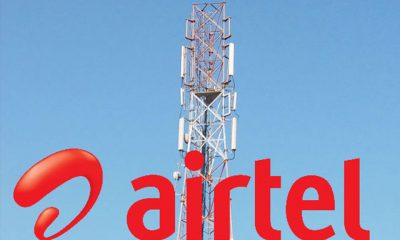Over 500,000 daily commuters on the Lagos Bus Rapid Transit (BRT) system can now board buses using a contactless card payment system. It is an enhancement which makes the Lagos Connect card launched last November by Governor Akinwunmi Ambode usable on mass transit systems anywhere in the world.
Powered by Lagos State, LAMATA, Primero Transport Limited and Sterling Bank Plc, the enhanced electronic payment system was launched in partnership with leading global payment and technology companies –Mikroelektronica, MasterCard, E-Purse Systems, Monet Plus, NIBSS, Epay-plusand SecureIDin Lagos. It allows commuters who ride on BRT buses to make payments via their Lagos Connect contactless cards powered by Farepaythat have either been pre-loaded or linked to a funded bank account.
Largest of its scale in Africa, the Europay MasterCard and Visa (EMV) compliant contactless payment system was designed to speed up commuting time by making payment easier and faster because it empowers commuters to just tap their cards on a console to board a BRT bus. It eliminates the high turnaround time associated with cash-based ticket purchases.
The launch of the Lagos Connect EMV compliant contactless card powered by Farepayon the BRT system puts Lagos ahead of some mega cities including New York in terms of implementation.
Abubakar Suleiman, MD/CEO, Sterling Bank said the bank is intent on achieving its primary role of financial intermediation through intervention in sectors that will create jobs and bring about economic growth for the country. He identified such sectors as health, education, agriculture, renewable energy and transport. Adding that this explains the bank’s commitment to the transformation of the transport sector.
Abubakar stated that the bank is proud to collaborate with Lagos State, LAMATA, Primero, E-Purse Systems and MasterCard to launch a multimodal contactless payment card for use on mass transit buses, ferries and trains in the Lagos metropolis.
“This is another major step forward in enhancing the commuting experience and social well-being of more than 80 per cent of Lagos residents who rely on public transport daily. Sterling Bank is committed to improving standards in a sector that is a crucial of driver economic growth and determinant of social well-being for both urban and rural residents.
“We are driven by the understanding that an efficient transport system facilitates trade, reduces poverty, creates economic and social opportunities while enhancing human development through greater mobility. Working with our partners, our vision over the next few years is to understand the peculiarities of various locations and replicate this kind of solution across the nation. Transformation of the transport value chain is an imperative for us at Sterling Bank,” he informs.
He especially commended the Lagos State Governor, His Excellency, Akinwunmi Ambode for creating the enabling environment with the launch of the Lagos Connect Card in November 2017 which has made the enhancement of the system to EMV standard possible thereby putting Lagos amongst the most advanced cities for transit payments globally.
Chief Demola Seriki, Chairman, Primero Transport Limited, described the launch of the enhanced Lagos Connect EMV compliant contactless payment system powered by Farepayas symbolic. “We are delighted to unveil the enhanced Lagos Connect EMV compliant contactless payment system powered by Farepay. It is indicative of efforts to eliminate the inefficiencies associated with public transportation in Lagos. A lot of work is being put into transforming public transportation into a world class and sustainable industry which brings comfort to commuters and creates economic and social opportunities.
“The BRT system was initiated by the Lagos State Government as part of the strategies to modernise the public transport system in Lagos to ensure it compares with what obtains in other major cities around the world. What we are witnessing today is a major stride towards providing efficient service that will encourage patronage of the Bus Rapid Transit by middle class commuters thereby reducing the number of private vehicles on our roads.”
On her part, OmokehindeAdebanjo, vice president and area business head, West Africa, Mastercard said, “Technology has the potential to shape the way African’s live, and the importance of removing cash from key sectors remains a critical focus for Lagos State and the Federal Government of Nigeria. The contactless solution has the potential of not only solving challenges faced by other channels of transport, but it can also be easily implemented in sectors such as retail and government services. This is an important step to creating a smarter Lagos, and a Nigeria that is less dependent on cash.”

 Cover Story2 weeks ago
Cover Story2 weeks ago
 Innovations2 weeks ago
Innovations2 weeks ago
 IT in Banking2 weeks ago
IT in Banking2 weeks ago
 Training and e-Learning2 weeks ago
Training and e-Learning2 weeks ago